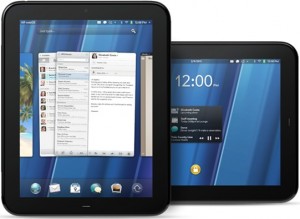 With Apple continuing to dominate the tablet market, it was probably only a matter of time before other manufacturers began to slash their tablet prices in an effort to increase market share. While this would be the logical response to the iPad’s category-crushing success, other tablet manufacturers have thus far refrained from engaging in price wars with Apple, likely because the iPad’s success has driven up tablet component costs for everyone else in the industry. Manufacturers have been jumping into the tablet game in large part because they want to emulate Apple’s 25% profit margin on the iPad, but since they’re paying higher component prices than Apple, cutting retail prices would thwart the very reason they got into the tablet game in the first place.
With Apple continuing to dominate the tablet market, it was probably only a matter of time before other manufacturers began to slash their tablet prices in an effort to increase market share. While this would be the logical response to the iPad’s category-crushing success, other tablet manufacturers have thus far refrained from engaging in price wars with Apple, likely because the iPad’s success has driven up tablet component costs for everyone else in the industry. Manufacturers have been jumping into the tablet game in large part because they want to emulate Apple’s 25% profit margin on the iPad, but since they’re paying higher component prices than Apple, cutting retail prices would thwart the very reason they got into the tablet game in the first place.
Today, however, all that changes: Woot is offering brand-new 16GB HP Touchpads for $379, and for those willing to stack coupons and venture to a brick-and-mortar store, the same 16GB HP Touchpad can be had at Staples this weekend for only $300 out the door. Considering that each 16GB Touchpad costs HP $307 in component costs alone (iSuppli doesn’t factor in the actual cost of assembling these components into a finished product, or the shipping and marketing associated with them), HP will likely lose money on every tablet sold through Woot or Staples this weekend.
Why, less than two months after introducing the Touchpad, is HP engaged in such aggressive price wars? It’s possible that they’ve already developed a follow-up to the Touchpad, and are simply trying to clear out current inventory to make way for its successor, but the hyper-compressed timeframe we’re seeing here doesn’t really support that theory. It seems more likely that HP is using the Touchpad as a loss-leader of sorts, to increase the adoption of its WebOS platform, in anticipation of its plans to integrate WebOS into its 2012 desktop and laptop offerings, as a fast-boot alternative pre-installed alongside Windows.
With recent studies showing that 26% of enterprises are already using, or are planning on using, tablet computers as part of their IT infrastructure, HP’s retail prices cuts on the Touchpad may signal a larger strategy to aggressively price the tablet for end-users, and double-down on its efforts to pursue the (potentially more lucrative) enterprises market. Heck, HP has already internally moved its Touchpad development team to its notebook department, as it hopes this will allow them to make their tablet more enterprise-friendly, and stave off declining enterprise sales of traditional notebook computers.
HP’s motivations for slashing the price of its Touchpad are manifold, and likely unique to HP alone. For a company like Samsung, who is selling tablets based on a non-proprietary OS, and has no real ambitions of using their tablet devices as a gateway to a larger Samsung-product ecosystem, slashing prices on their Galaxy Tabs would seem a foolhardy move. Or, at least, it would have a few days ago. Now that HP’s thrown down the gauntlet, and shown its willingness to dramatically undercut the retail price of its competitors, we’ll likely see similar such moves from other manufacturers in the coming weeks and months. If your business has been on the fence about whether to adopt tablets into your IT system, now might be the time to start reassessing your options.
